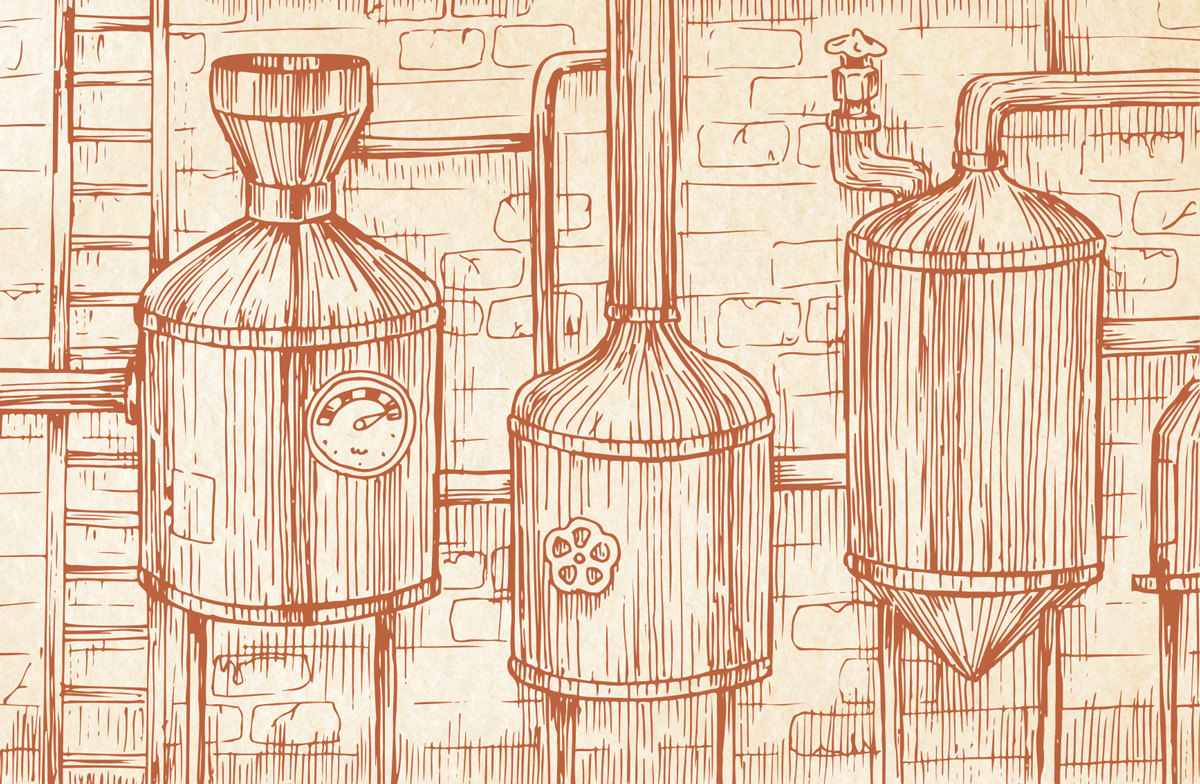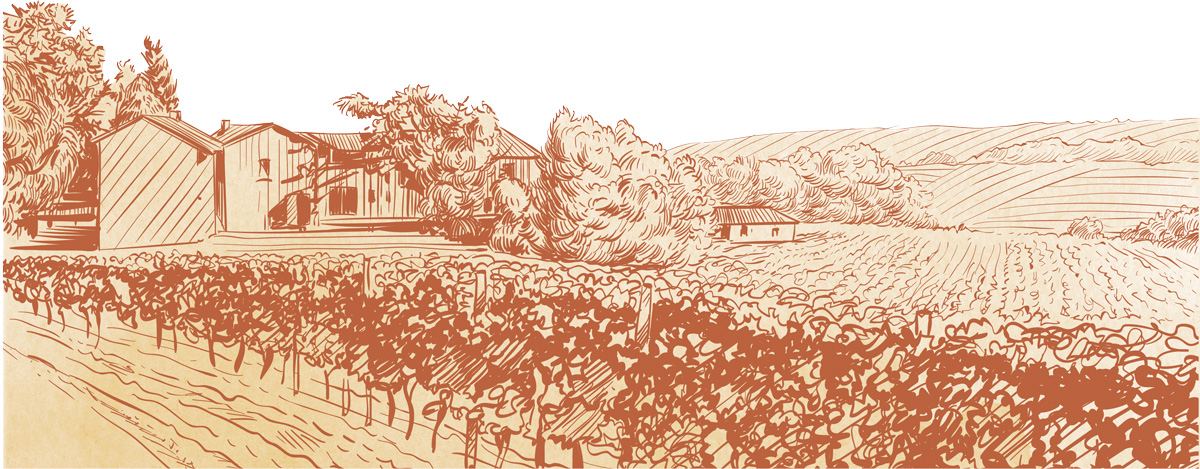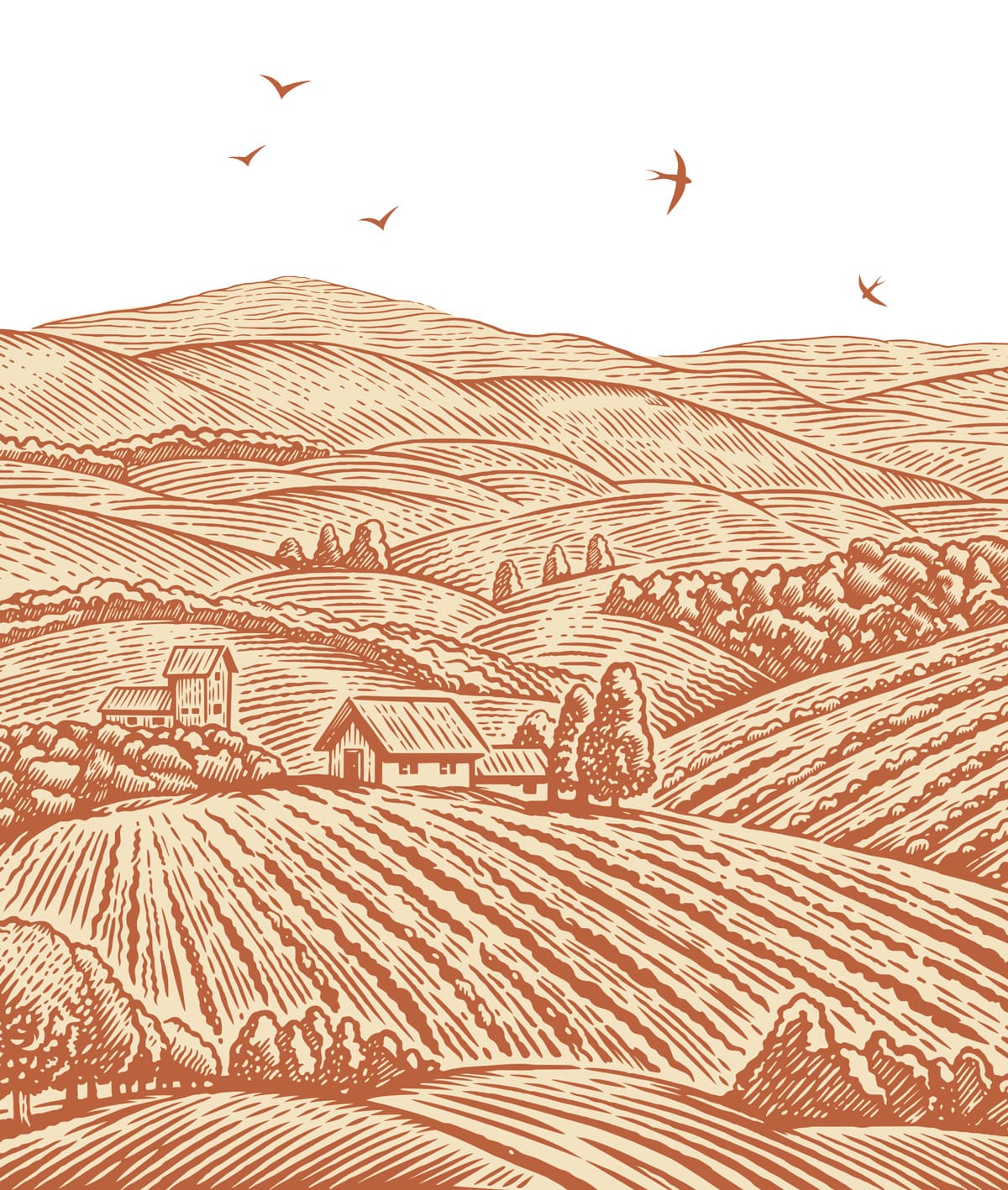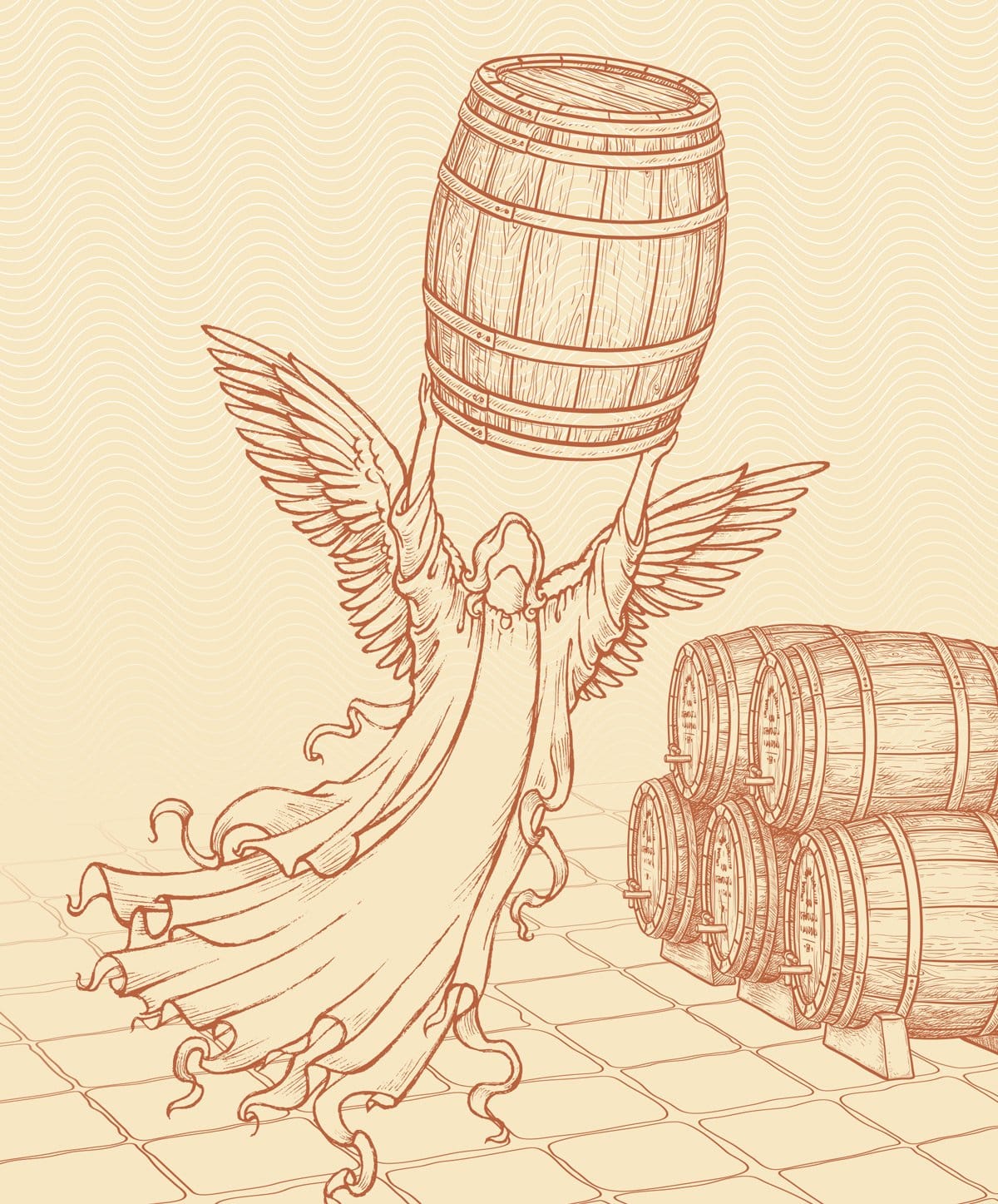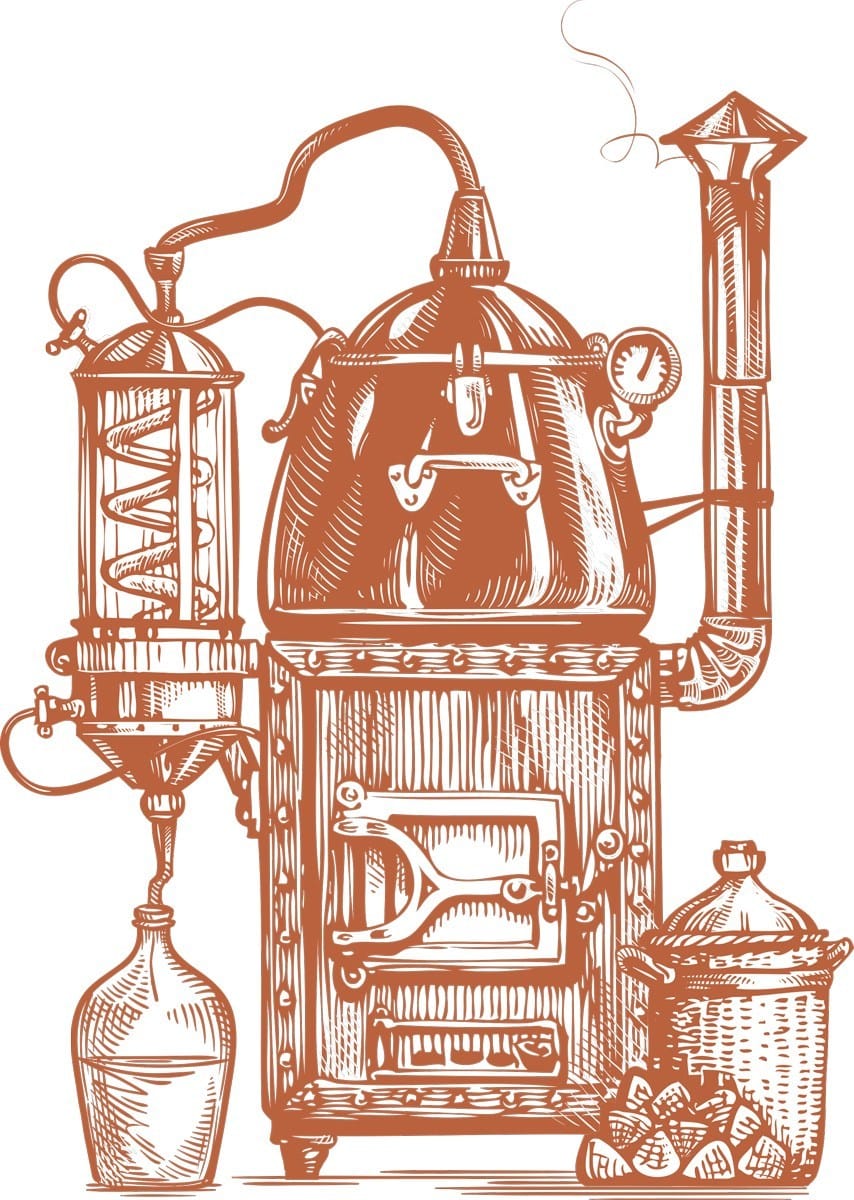Private-cask whisky sales are a “futures” investment in B.C.’s small-batch distillers. Here’s how and why they do it.

They’re lined up like Papa, Mama and Baby Rye: 20-, 10- and five-litre mini-barrels, their ends embossed with the names of proud owners who, in eight weeks or so, get a crash course in craft spirits aging—and their own one-of-a-kind bottles of Custom Rye.
“We were kind of inspired by beer growlers,” says Brian Grant. He and Resurrection Spirits partner David Wolowidnyk charge customers once for the barrel ($150 to $350 depending on size), which they can pay the distillery to fill with white rye (or even gin) multiple times, at the bargain price of $37.50 a bottle. Vancouver’s Homer Street Grill and Unwind are among bar clients already serving their own private batches.

